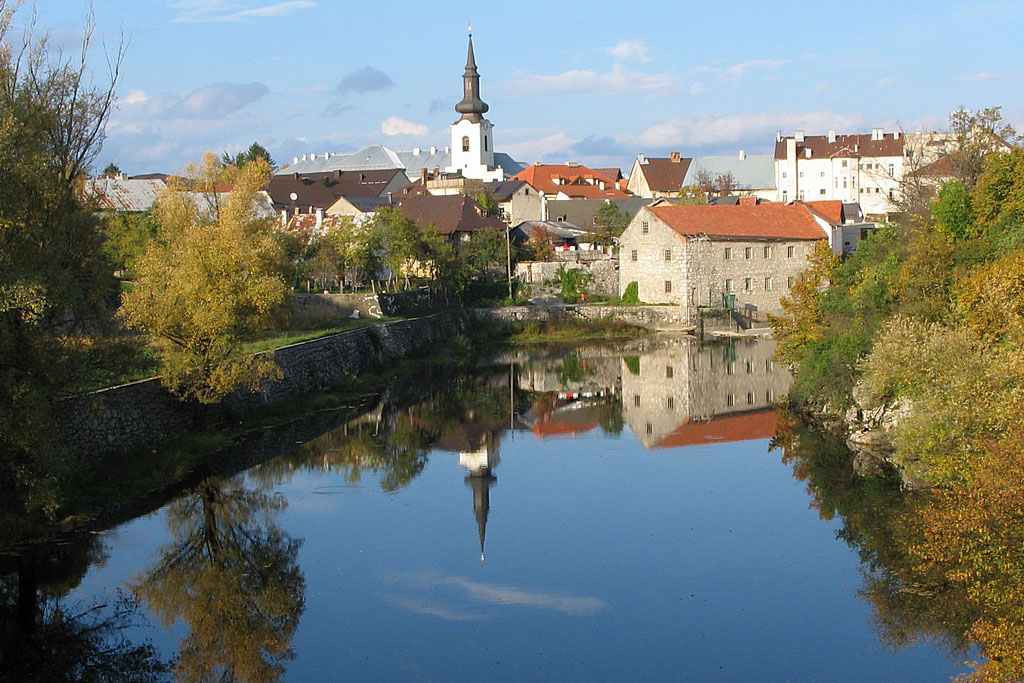
Alarm bells are ringing virtually across Europe: populations are in precipitous decline. Over the short term, let alone the long term, many of the EU’s eastern members have been literally contracting in terms of numbers since they joined the Union in 2013, due to the departure of young people looking for a brighter present and future on the other side of Europe –taking advantage of the free circulation of people and workers– and the low birth rate among those who remain. As far as these new members are concerned, accession to the EU has acted like a magnet drawing out their populations, compounded by the fall in the birth rate.
It is a continent-wide tragedy. So much so that Croatia, which currently holds the revolving presidency of the Council of the EU, has made it the top priority of its six-month term. The Croatian Prime Minister, Andrej Plenković, views the demographic decline as an ‘existential risk’ for the whole of Europe, to which the EU must respond. The Bulgarian political scientist Ivan Krastev, in his recent book (co-authored by Stephen Holmes), tellingly entitled The Light that Failed: How the West Won the Cold War and Lost the Peace, argues that ‘demography is destiny’ and draws attention to this ‘demographic collapse’.
Bulgaria, Latvia, Croatia, Romania (there are more than 700,000 people of Romanian origin in Spain) and Lithuania lead the way in population decline. Ten EU member states saw their populations fall in 2018. Bulgaria, which has lost 6% of its population since 2008, is the country with the fastest-declining population in the world. More than a million Bulgarians have left the country. Since the end of Communism its population has dropped from 8.7 million in 1990 to fewer than 7 million today. And the forecasts suggest that it will continue shrinking, reaching some 5 million people by 2050. Young people are leaving, and the few that remain do not want children, despite seeing jobs and salaries rise (by 6.6% regionally) due to the lack of manpower; this in an economy that is growing thanks in part to EU funds, which may now be cut with the Brexit setback. Latvia has lost a fifth of its population since in joined the EU in 2004.
Croatia exhibits a similar pattern. Between joining the EU in 2013 and 2018, 233,000 Croats have left the country and the exodus has not been stemmed, with all this entails in terms of a brain drain. Poland, suffering similar problems, despite its reluctance to acknowledge them, is opening itself up to immigration from Ukraine and other neighbours to offset the decline. Hungary, whose government was at the helm of turning away refugees from the Syrian civil war –paradoxically, many of the countries with falling populations oppose immigration and EU policies in this field– prefers to promote what the authoritarian Prime Minister Viktor Orbán has dubbed ‘fertility clinics’ to boost the birth rate and avoid having to rely on immigration.
Western Europe shows different but nonetheless troubling patterns. Countries to the north have somewhat halted their demographic decline. Countries to the south are trending downwards, although Spain escaped decline in the latest statistics thanks to immigration. But according to the European Commission’s forecasts, Spain and Italy are set to lose a quarter of their populations by 2050. France is holding on, thanks to a policy of helping working mothers, and Germany, with similar measures, is also holding its own. With Brexit, the UK is going to be closing its doors, thereby removing a destination favoured by almost a million Poles.
Are there solutions? There are none of the instant variety, but action must be taken immediately even if the effects will come in the medium and long term. The Croatian presidency of the EU has asked the European Commission and Council to investigate ways of reversing these trends, essentially with policies that are pro-family. It is by no means easy, either at the EU level –given the heterogeneity of the situations and their causes– or at the national level, as we know with a country like Spain, with some rural areas that are almost deserted. The same applies to the wider continent, where Russia and Ukraine, as well as the Balkans, are also suffering from this type of problem, one that affects the weight of a shrinking Europe in a world that is still growing in demographic terms. By 2050 the median age in the EU will be 47, which will be four years older than the US, let alone the rest of the world (with major exceptions such as Japan and, increasingly, China). No EU country has a high enough birth rate to replace its deaths, a recent editorial in the Financial Times points out, citing a UN report and some interesting tables and graphs.
The alarm requires not only national but also EU-wide policies, because it is a European problem, caused in part by the very advantages the EU brings. As an International Monetary Fund report on the subject puts it, ‘there is no single or easy remedy to address demographic pressures’. There is an urgent need for widespread systems to help women work and have children at the same time, prominent parts of which are equal parental leave and universal and affordable nursery care; more work in store for Teresa Ribera, the new Vice-President for Ecological Transition and (no less) the Demographic Challenge, who will also have to concern herself with this problem at the EU level, and for the forthcoming National Long-Term Forward-Looking Strategy Unit, located at the apex of the Spanish government.


